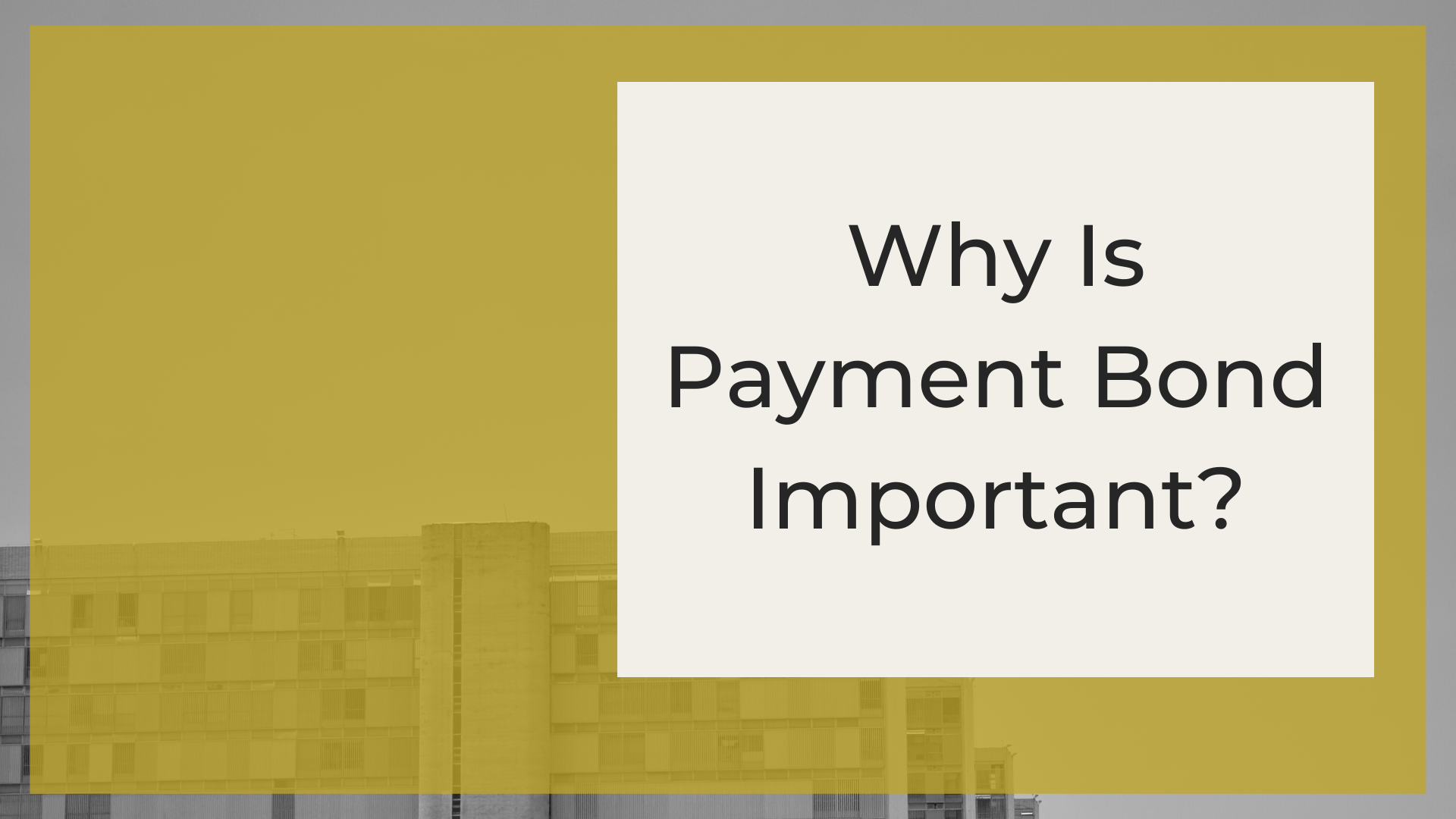What is a payment bond?
A payment bond is a type of surety bond that guarantees payment for services or goods provided. The bond issuer, usually a bonding company, agrees to pay the contractor’s creditors if the contractor fails to do so. Payment bonds are often required for government contracts and large construction projects.
The bond amount is usually based on the total contract value. The contractor must pay the bonding company a fee, which is typically a percentage of the bond amount.
There are two types of payment bonds: performance and payment. A performance bond guarantees that the contractor will complete the project as agreed upon, while a payment bond guarantees that contractors will be paid for services and goods provided.
What is the use of payment bonds?
A payment bond is a type of surety bond that guarantees the payment of workers’ wages and other contractually obligated payments. Payment bonds are often used in the construction industry but can be used in other industries as well.
There are several benefits of using a payment bond. First, it ensures that workers will be paid on time and in full. This can help protect businesses from having to pay workers out of their own pockets if the contractor fails to do so. Additionally, payment bonds can help businesses secure contracts by demonstrating their financial stability. Lastly, they can help reduce the risk of supplier or subcontractor nonpayment.
If you’re considering using a payment bond for your business, it’s important to understand the specific requirements of the bond. There may be certain state or federal regulations that must be followed, and the bond amount will vary depending on the project size.
Why is the payment bond important?
When you’re bidding on a construction project, it’s important to have a payment bond in place. This is a bond that guarantees that you’ll be paid for your work, even if the contractor fails to pay you. Without a payment bond, you could find yourself out of luck if the contractor doesn’t pay up. So, make sure to include a payment bond in your bid, and rest assured that you’ll get paid for your hard work.
A payment bond is also important because it guarantees that the contractor will pay their subcontractors and suppliers. This can be a lifesaver for smaller businesses, which may not be able to afford to wait months or even years to get paid. By having a payment bond in place, these businesses can rest assured that they’ll get paid for the work they’ve done.
Who can use payment bonds?
A payment bond is a type of surety bond that is used to guarantee payment for goods or services. Payment bonds are often used in the construction industry, but they can be used in other industries as well.
There are a few different types of payment bonds: performance bonds, labor, and material payment bonds, and freight broker bonds. Performance bonds are the most common type of payment bond. They guarantee that the contractor will complete the project according to the terms of the contract. Labour and material payment bonds guarantee that workers will be paid and that materials will be delivered on time. Freight broker bonds guarantee that goods will be transported safely and on time.
Most states require payment bonds for certain construction projects. The amount of the bond is usually based on the value of the project. The bond can be used to pay for labor, materials, or other expenses related to the project.
Who needs payment bonds?
There are several reasons why a payment bond might be needed. First, it can help protect subcontractors and suppliers from being left out of pocket if the contractor fails to pay them. Second, it can help ensure that the project is completed on time and on budget. Finally, it can help reduce the risk of legal disputes between contractors and subcontractors.
Most states require payment bonds for public projects, but they’re not always required for private projects. Contractors can purchase payment bonds from insurance companies, surety companies, or banks. The cost of a payment bond varies depending on the amount of coverage required and the creditworthiness of the contractor.
Basically, anyone who wants to make sure that a contractor will pay its subcontractors and suppliers for the work they’ve done. Payment bonds are especially important in the construction industry, where it’s not always easy to get paid for work completed. They’re also important for private projects, where the contractor might not have a good credit history.
